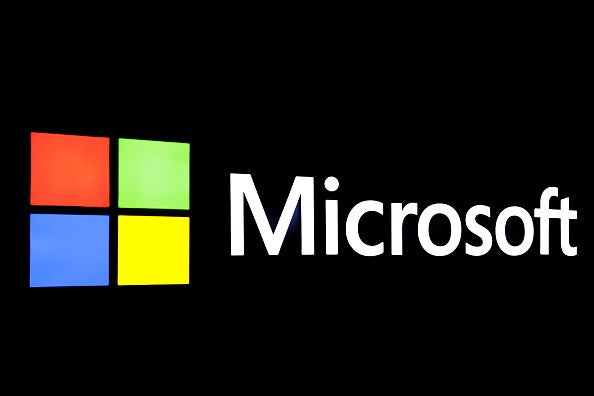
Although it has its roots in the financial services sector, the influence of blockchain technology has quickly expanded into a wider pool of sectors over the last two years or so – from retail and manufacturing to media and healthcare.
Businesses large and small are testing use cases and potential applications to prepare themselves for the technology’s next stage of development, with several factors prompting organisations to consider blockchain adoption. In a recent Forrester study commissioned by EY, the preservation of data integrity, an ability to build new revenue or business models and increased operational efficiency ranked as the top three drivers.
However, the key question is: should enterprises be opting for private or public blockchain networks? The vast majority of enterprise applications have so far been built on private-permissioned blockchains – primarily due to privacy and security concerns – but this can present operational complications in large enterprise networks consisting of lots of different stakeholders.
As a result, technologists are rethinking how we can use public blockchains to help enterprises escape the limitations of private networks, increase interoperability and make the most of the technological opportunity available to them – all without putting any sensitive data at risk. For this to work, we need to move away from thinking of blockchains (public or private) as places to store sensitive data or run business logic such as smart contracts. Instead, we need to think of public blockchains as a middleware that can transform how enterprises operate.
Public blockchain and enterprise: Dealing with complexity
Modern enterprises are more complex and disparate than ever before, typically consisting of interconnected networks spread out over multiple geographies. The supply chain provides a perfect example – lots of different businesses, all working in their own way. This makes them incredibly difficult to manage effectively which, along with network visibility, is one of the main reasons why friction and inefficiency is rife in supply chains.
To try and counter the problem, businesses have spent hundreds of millions of dollars on various internal systems of record (e.g. ERP and CRM systems). But failure to properly synchronise these systems between supply chain enterprises causes considerable disruption and waste, including disputes, lost inventory, inflated capital costs, regulatory actions, and other value leakage.
How well do you really know your competitors?
Access the most comprehensive Company Profiles on the market, powered by GlobalData. Save hours of research. Gain competitive edge.

Thank you!
Your download email will arrive shortly
Not ready to buy yet? Download a free sample
We are confident about the unique quality of our Company Profiles. However, we want you to make the most beneficial decision for your business, so we offer a free sample that you can download by submitting the below form
By GlobalDataTo avoid these issues, systems require a common frame of reference. But only the largest high-volume partnerships can afford the capital expense involved in setting up such integrations. Enter blockchain, which has been touted as an affordable long-term solution to the challenges associated with supply chain management.
Enterprise blockchain solutions have the ability to synchronise data between business partners, providing a shared record of data and transactions, which has prompted many to deploy private blockchains. The problem is that these networks can be a significant drain on money and resources, as well as leading to even more data silos – as shown by the fact that 45% of people are concerned about interoperability with other blockchain networks.
Combine this with the fact that past approaches to blockchain technology have had difficulty meeting the highest standards of privacy, security and performance required by corporate IT departments, and it’s clear that a new approach – and mindset – to enterprise blockchain is required.
Supply chain transformation
In today’s world, supply chain networks have to provide stakeholders with confidence in the accuracy of their data, without forcing them to sacrifice security or control. Most importantly, interoperability must be assured in order to remove data silos.
This is where public blockchains can make all the difference. Instead of viewing a public blockchain – also known as a ‘mainnet’ – as a data repository, we should see it functioning as the lowest-level common frame of reference for distributed systems. This can provide a network that is always on, so companies can’t be locked out or restricted from using it.
Essentially, the public mainnet can act as a ‘middleware’, enabling confidential and complex collaboration between enterprises without leaving any sensitive data on-chain. It can connect companies while leaving enterprise data safely in traditional systems, enabling end-to-end processes to be run securely without impacting operational integrity.
In supply chain networks, the visibility and immutability provided can ensure that there are no delivery or payment disputes. They can also execute smart contracts in real time and enable businesses to track where every item has come from, which would transform the way food supply chains monitor and eliminate potential health threats.
Ultimately, more and more businesses are recognising the potential of public blockchains as they continue to come up against various stumbling blocks with private networks. As long as businesses approach blockchain in the right way, public mainnets can fill in any gaps in enterprise directories and transform end-to-end supply chain processes.
They can help build relationships and drive collaboration while letting enterprises stay in control of their sensitive information. This will create new opportunities for enterprises, as well as helping them drive new value for many years to come.
Read more: Blockchain harnessed to track the spread of coronavirus






